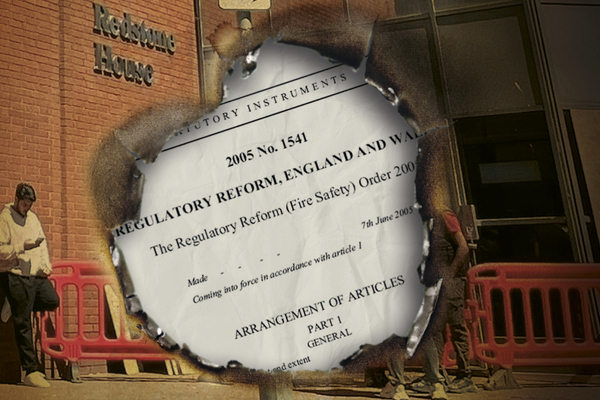You are viewing 1 of your 1 free articles
Community Housing Cymru ‘concerned’ homelessness bill will not address sector’s challenges
Community Housing Cymru has welcomed Senedd committee recommendations for a “landmark” homelessness bill, but remains concerned that sector challenges will not be fully addressed.

The Homelessness and Social Housing Allocation (Wales) Bill, introduced to the Senedd in May, would give local authorities the power to compel social landlords to accommodate someone owed a homelessness duty, unless there is good reason not to do so.
As part of stage one of the bill’s progression, the Local Government and Housing Committee last week published its recommendations.
Among them was a call for the Welsh government to publish “tightly defined referrals guidance” for social landlords that specifies when they may refuse a referral.
The committee also said this guidance should stipulate that local authorities share information with landlords about any support needs an applicant may have.
According to a similar report by the Legislation, Justice and Constitution Committee, Jayne Bryant, cabinet secretary for housing and local government, has said she is “content to bring forward an amendment to change the guidance power to a ‘must’”.
While CHC said the committee reports aligned with several of the Welsh housing sector’s concerns, they “remain concerned” that some of the challenges facing social landlords “will not be addressed on the face of the bill”.
The membership body continued: “We will be engaging further with the Welsh government and members of the Senedd on this.
“We remain a committed partner in delivering a homelessness system where being homeless is rare, brief and unrepeated.
“We look forward to working with others in this next stage of the bill to ensure greater operational certainty and financial realism for the social housing sector.”
The housing committee’s report also noted a commitment from the cabinet secretary to “consider amending the bill to allow for specified types of social housing allocation to take place outside the common housing register”.
On costs, the committee urged the government to “undertake further analysis of the potential need under the duty to provide help to retain suitable accommodation”.
It suggested that the impact assessment already undertaken had “significantly under-estimated” the anticipated cost of providing the help, since it was based on data from only three local authorities.
Other key changes proposed by the bill include removing the priority need test and the intentionality test, and bringing in a new local connection test.
The priority need test has been found to disadvantage people who are young or single, while the intentionality test judges whether someone has made themselves “intentionally” homeless.
While the housing committee supported ending the intentionality test, it noted concerns that a new “deliberate manipulation” test could be used in similar ways, leading to vulnerable people being unable to access social housing.
The committee also emphasised that “legislation alone will not be enough to achieve the ambition of ending homelessness”, and that “sufficient resources and housing supply” will be necessary to deliver changes.
“A major effort is needed from the Welsh government and the housing sector to deliver more social housing, which will be crucial to the bill’s success,” the report said.
It recommended the government significantly increase the Social Housing Grant and Housing Support Grant for 2026-27, while also finding “innovative ways of raising funds to deliver the supply of social housing needed to achieve the aims of the bill”.
Sign up for our Wales newsletter
New to Inside Housing? Click here to register and receive our Wales round-up straight to your inbox
Already have an account? Click here to manage your newsletters
Latest stories








